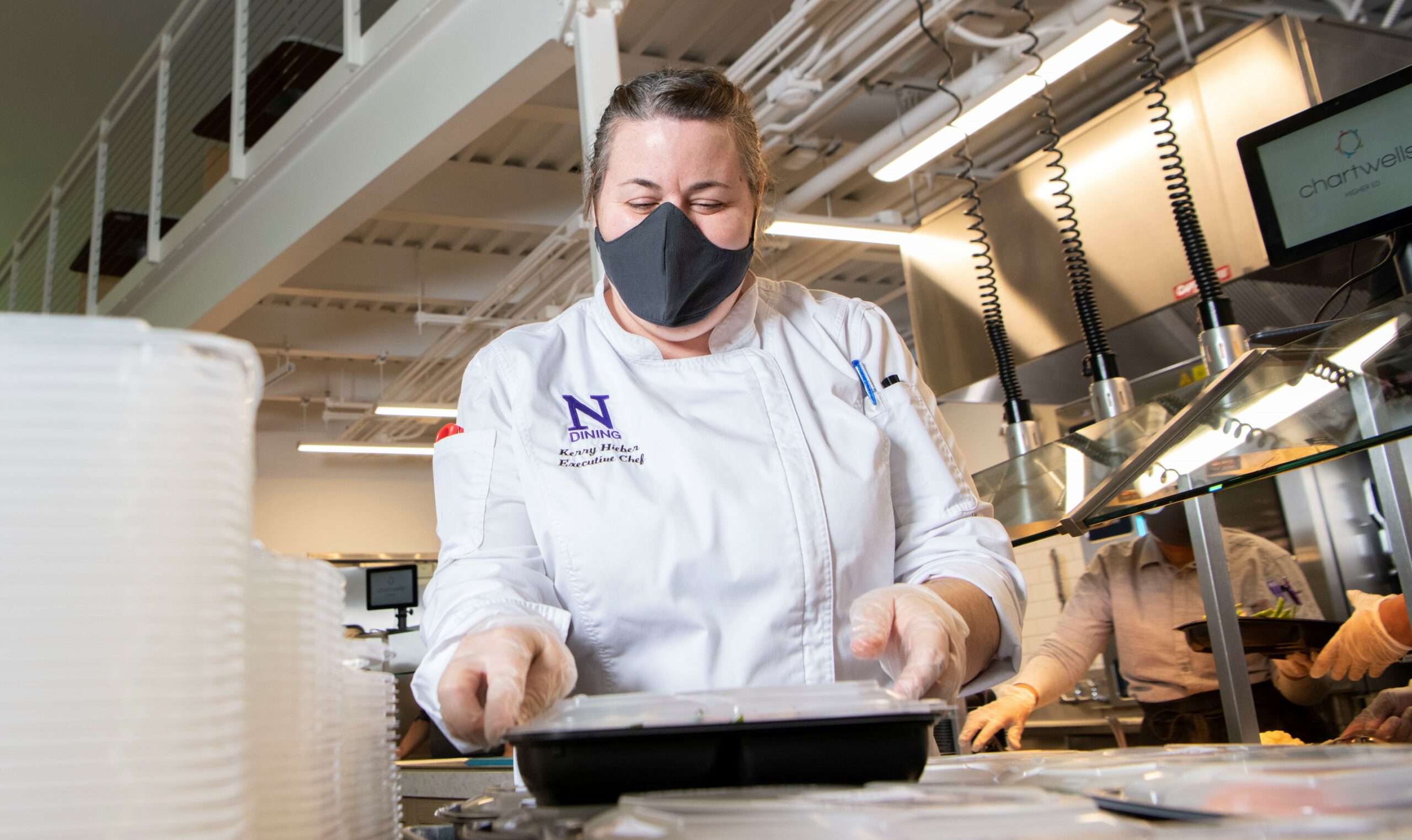Before the second semester began in January, more than 2,000 students housed on Northwestern University’s campus were placed in quarantine for two weeks to help protect the community against the potential transmission of COVID-19.
That meant all of them needed to be fed, which led to a massive effort by Northwestern Dining to ensure students were receiving healthy meals and other requested items. But by mid-afternoon on Day 1, they recognized a problem which turned out to be a good problem.
“When we saw that there were almost 500 meals left over after our first lunch service, we quickly launched a rapid food recovery program,” said Jennifer Byrdsong, Compass Group’s Vice President of Dining Operations at Northwestern. “We know how important it is to give back. The pandemic has made it clear to us how fortunate we all are to have food to eat.”
The next day, Northwestern Dining, the Compass Group (Chartwells Higher Education) and its Director of Sustainability Sarah Levesque created a plan along with GiveNKind and several nonprofits to have excess food distributed across Chicago and its suburbs. Within two weeks, the efforts provided an amazing 11,000 meals to needy families in the area.
From school districts to food banks and pantries, NU Dining’s creativity and the willingness of partners to step up delivered in a big way to families during a crisis moment.
“Once local organizations knew meals were available, they were the true heroes by answering the call; this program is a true testament to the network of food recovery organizations and volunteers from all over the city,” Levesque said. “Northwestern Dining continues to recover food with our on-campus partners, Campus Kitchens at NU.”
Campus Kitchens, a student-led organization, takes thousands of pounds of surplus food from dining facilities each week, create meals and delivers them to those in need in the Evanston community. It also hosts many fun events for children, helps them with homework and holds nutrition seminars, as well as preparing meals for holidays. During the two weeks of quarantine, it was instrumental in preparing those boxes of excess food and other non-perishable items.

Delivering on campus, too
Aside from the initiative to feed quarantined students during the pandemic and to help those in Chicago-area neighborhoods, Northwestern Dining also has been trying to assist those on campus who also may be experiencing hardships, nearly half of whom receive need-based aid.
“Students who struggle with access to food often experience a double disadvantage — hunger and social isolation,” said Lisa Carlson, Dietitian for NU Dining. “Our approach is to provide multiple resources to help students gain confidence in the kitchen and to help them cook affordable, healthful and delicious meals.”
The collaborative work between both NU Dining and the Compass Group has led to several initiatives to fight food insecurity, including partnering for a session at the 2020 Global Conference on Sustainability in Higher Education and others on campus.

Like many other institutions that feel a duty to help students in need, Northwestern created a food pantry called Purple Pantry, where they can pick up groceries and other items. NU says nearly 100 students take advantage of the program, which offers appointments for weekly food pickups.
It also has created several programs that help students create inexpensive meals and tips on how to cook. Its Wildcat Food Guide is a website started by students with recipes and food hacks that can help in “meal planning and stretching students’ food budgets.”
NU Dining also offers a Teaching Kitchen program called Eating Healthy on a Budget, which is a series of cooking classes that offer quick skills on preparing simple meals, even those with items from the Purple Pantry. NU also has its own NU Cookbook: A Guide to Easy, Healthful and Budget-Friendly Recipes that can assist students.
Nationwide, one of the largest organizations that connects campuses in the mission to fight hunger and food waste is the nonprofit Food Recovery Network. For the past decade, students across the U.S. have been leading chapters at their colleges and universities, with the goal of recovering as much surplus food as possible and distributing it.

